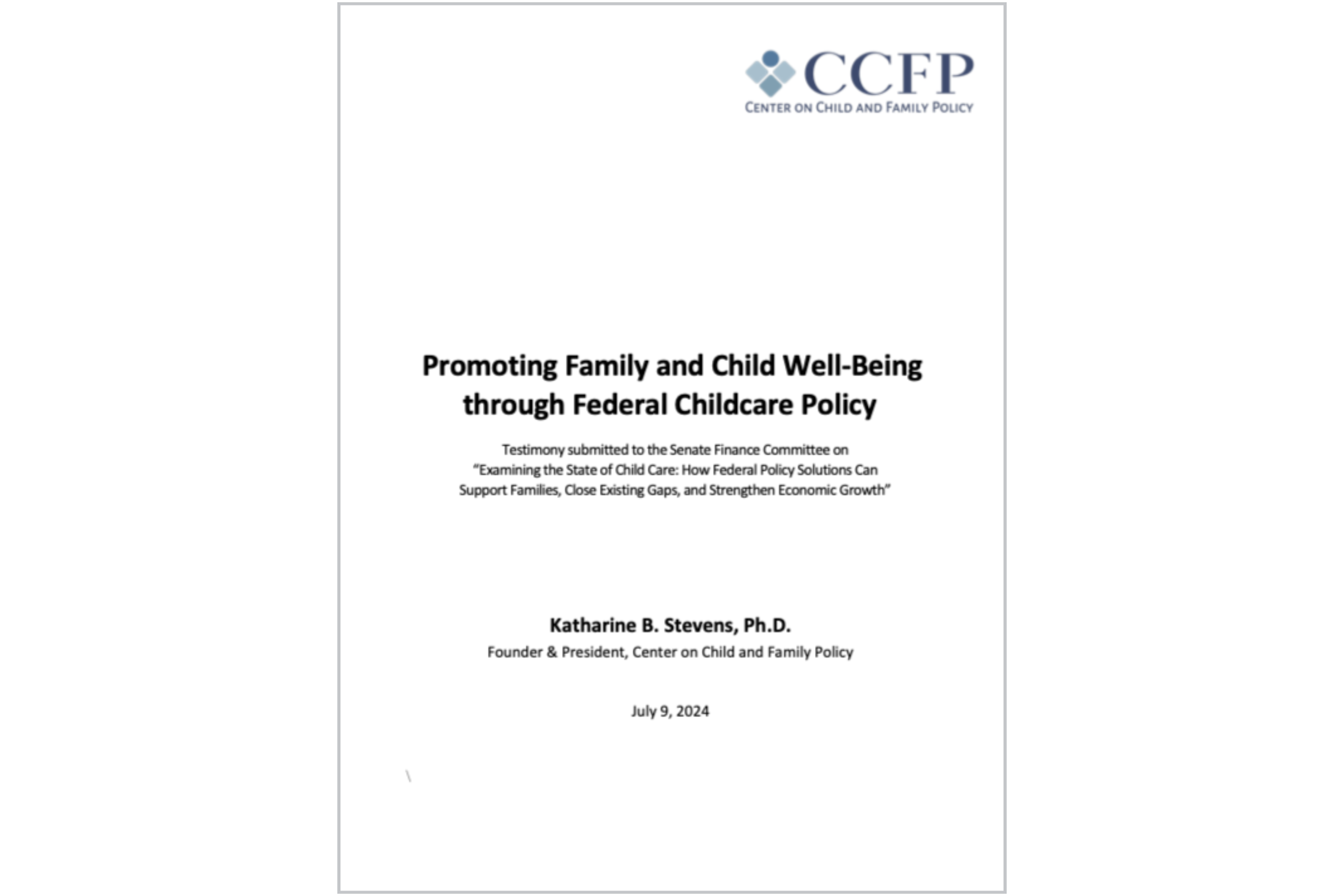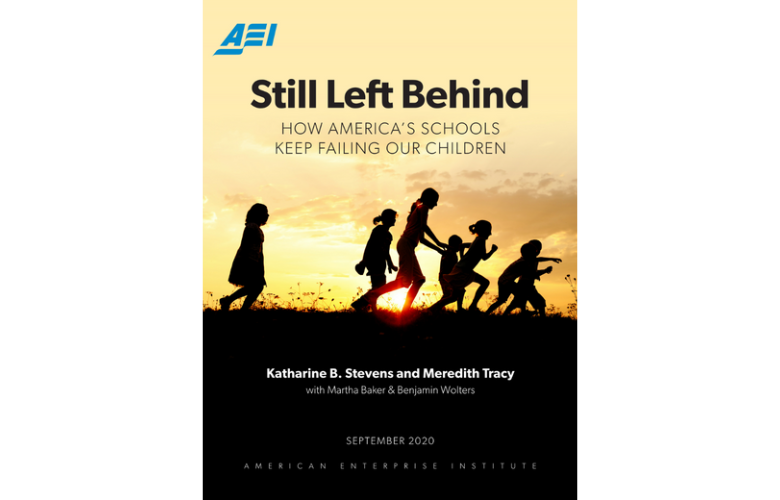REPORTS & TESTIMONY
Following her testimony at the Senate Finance Committee’s hearing on “Examining the State of Child Care,” Katharine Stevens answered Senators’ questions on four key childcare policy topics.
Federal policymakers should aim to: 1) Boost choice for low-income parents. 2) Shore up family childcare. 3) Break down bureaucratic silos to amplify impact of current funding. 4) Leverage a broader range of federal funds. 5) Promote state leadership in early care and education.
Is Build Back Better really dead? Katharine B. Stevens analyzes the childcare and universal preschool provisions of BBB, revealing a detailed legislative blueprint of an increasingly influential vision for America’s young children: federally-controlled preschool programs for all children from birth onwards.
Katharine Stevens and Matt Weidinger propose allowing parents to advance future child tax credits into the earliest years of their child’s life, strengthening families' ability to choose how and by whom their children are cared for during the formative first years of development.
Large proportions of the nation’s most vulnerable children lack access to high-quality child care. Instead of pushing a big government expansion of child care, that is the emergency we should urgently be aiming to address.
One-third of lower-income eighth graders still fail to demonstrate even minimal competence in reading and math, and wide achievement gaps persist in every state, despite decades of ever-intensifying school reform and steadily increased spending,
New Mexico’s Legislative Finance Committee (LFC) recently concluded that “prekindergarten remains a cost-effective way to improve student outcomes.” But the data they present cites does not support that conclusion.
States increasingly recognize childcare’s critical impact on children’s early learning and development. Yet to support growing state efforts to provide low-income working families with adequate access to high-quality care, we must fix dysfunctional and fragmented federal funding streams.
We must find new ways to promote and leverage growing state commitment to early childhood, to incentivize state innovation, and to highlight strategies and activities of currently leading states.
Advancing access to high-quality childcare is a wise investment in America’s future — strengthening business today while building the workforce we’ll depend on tomorrow and for decades to come.











